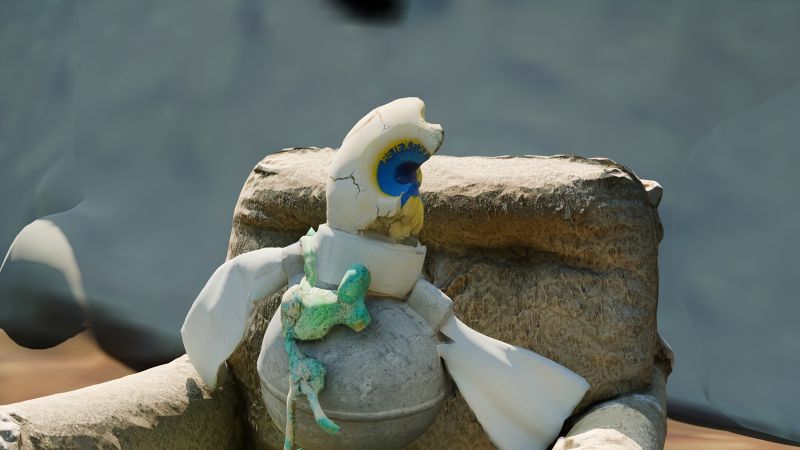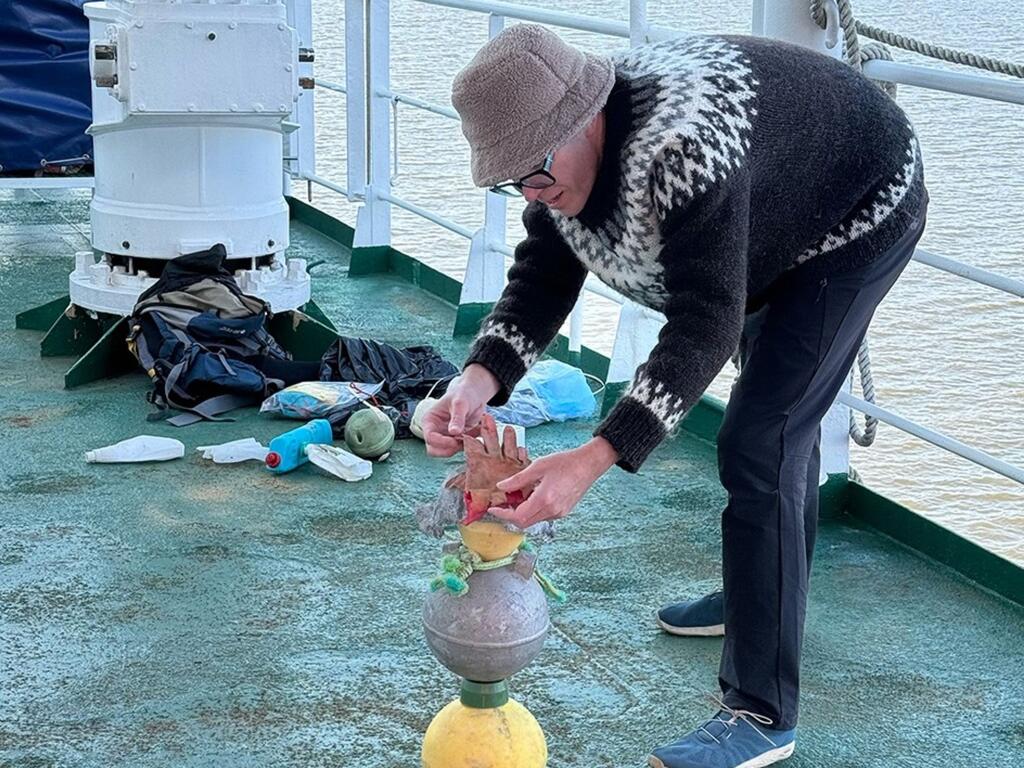Karl Erickson, associate professor of art at Rhodes College, has been selected by a four-person jury panel to be awarded a $7,500 art grant for his project titled “A River of Trash-Puppets.” The grant is from Tri-Star Arts as a partner in the Regional Regranting Program of The Andy Warhol Foundation for the Visual Arts.
Erickson makes digital animations and audio/visual-performances about language, transformative experiences, self-betterment, and environmentalism. “My project is a series of experimental animations and puppet-sculptures about waste and non-native species along the Mississippi and Wolf Rivers in Memphis. To make these works, I collect trash from around the rivers and assemble it into puppet-like sculptures,” he said. “I plan to digitize them using 3D scanning processes. These digital ‘trash-puppets’ will sing, dance, and tell stories of their unexpected journeys along the rivers, personifying the entanglements that bring human-generated material into contact with the more-than-human.”

Established in 2014, Tri-Star Arts seeks to support visual artists and artist collectives in creating independent, non-traditional, public-facing projects that contribute to the rich dialogue within contemporary visual art scenes across the state of Tennessee.
Because Erickson’s project combines environmental science with digital puppetry, he will reach out and collaborate with scientific and environmentalist communities around Memphis.
“These interactions will shape both the scientific accuracy and conceptual depth of the work. For instance, understanding how plastics arrive via currents, or how stowaway seeds threaten native flora, will inform both character development and narrative arcs,” said Erickson. “I’m also interested in engaging with those who oversee the movement of supplies, recycling, and refuse to understand how material flows are managed and how waste ends up along the rivers.”
The grant period is through May 2026. Erickson plans to create a small zine to document the digital puppetry process and his thinking around it, as well as a “how-to” guide so that others can try out some of the methods used in his project.
